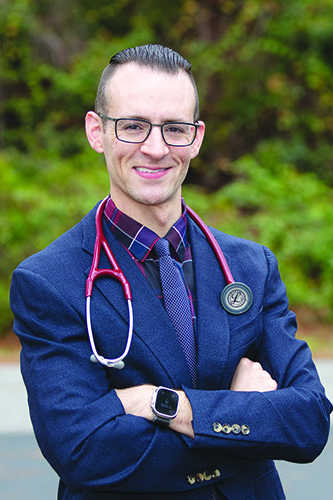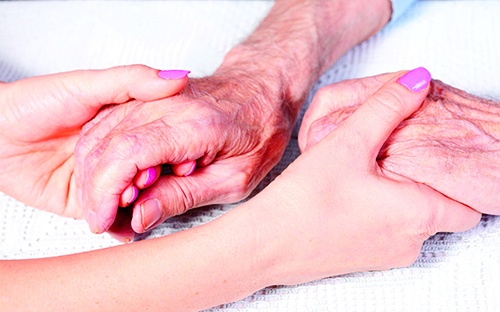Palliative Care
A team of specialists treats the whole person
When patients are facing a serious, potentially life-threatening illness such as cancer, kidney disease or congestive heart failure, they are fighting more than the disease. They are often dealing with painful side effects from treatment, financial stress over treatment cost and the overwhelming emotional toll for themselves and their loved ones.
To help these patients, physicians at the Nancy N. and J.C. Lewis Cancer & Research Pavilion in Bluffton may recommend palliative care. This involves a special team that includes a physician and a nurse as well as a social worker, dietitian and chaplain, all of whom are specifically trained in palliative care.

This is a specialty that Gregory Haidemenos, MD, of South Carolina Cancer Specialists, knows well. As a medical oncologist, Dr. Haidemenos treats patients through a continuum of cancer care, from diagnosis to treatment to survivorship. It’s a long journey through which a patient needs holistic support.
“In the same way that what I do—oncology—is a specialty for treating cancer, palliative care is a specialty that treats the whole person,” Dr. Haidemenos says.
What Is Palliative Care?
Palliative care focuses on the physical, emotional, psychological and spiritual needs that often accompany long-term illness.
“All four of those components are what makes a person who they are,” Dr. Haidemenos says. “This is why palliative care involves a full team of people—not just a physician but also nurses, counselors, pharmacists, dietitians and chaplains.”
Before receiving his fellowship in hematology/oncology, Dr. Haidemenos completed a fellowship in hospice and palliative care at MD Anderson in Texas. He understands how people can hold misconceptions about palliative care.
“When people hear the word palliative, they relate it immediately to hospice care, with the idea that end-of-life is imminent,” he says. “But palliative care can be incorporated at any point in a person’s care, whether it’s at the diagnosis, mid-stage or nearer the end stage.”
Palliative care works alongside an ongoing treatment plan to help with pain and other symptoms. For example, a cancer patient will continue receiving chemotherapy or radiation, while the palliative care team assists with managing the side effects of that treatment, such as nausea and fatigue.
“When talking about the trajectory of the disease from the standpoint of palliative care, the question is what are some of the interventions that are going to help a patient live with this chronic problem, and ultimately maximize their quality of life?” Dr. Haidemenos says.
The Seen And Unseen
The support from palliative care doesn’t end once physical symptoms are managed. The emotional and psychological needs that can’t be seen during a medical exam are a huge part of a patient’s journey.
“Even for a patient whose cancer treatment is going well, they are still dealing with the ups and downs of life,” Dr. Haidemenos says. “For example, they may be able to work full time, which helps prevent financial stressors, but they could also be dealing with depression or anxiety about their disease. Those difficult emotions can have dramatic effect on their overall wellbeing.” 
Dr. Haidemenos also notes the importance of spiritual wellbeing for patients in the Lowcountry.
“Many of my patients emphasize their faith and its role in their healing,” Dr. Haidemenos says. “Their faith can shape their decisions and their outlook, so it’s just as important as any other component of wellbeing.”
Having The Conversation
Dr. Haidemenos understands the strong link that most people perceive between palliative care and hospice care. But he hopes that patients and families will be open to having that conversation. Clearing up misconceptions about palliative care should not only alleviate fears but also encourage patients about the journey ahead.
“There’s not much we can do about the terminology itself, but it’s up to us as providers to clearly explain what palliative care is,” Dr. Haidemenos says. “When we do that, it’s almost always embraced with open arms. It’s understood that this is ultimately going to be in the best interest of your wellbeing and it will provide a lot of support.”
Learn more about South Carolina Cancer Specialists here.